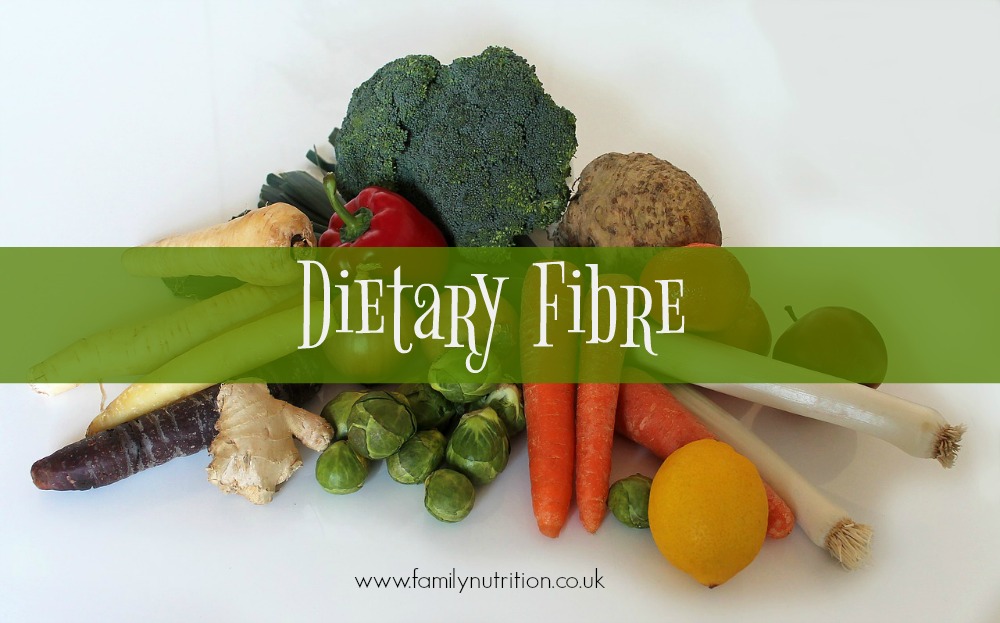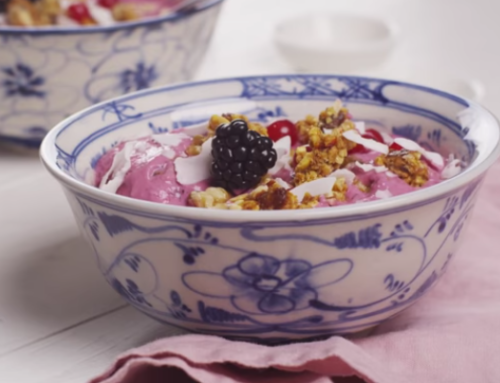If we ate a healthy balanced diet, we would generally eat sufficient dietary fibre everyday – but for most, the daily reality is different story altogether.
The British Nutrition Foundation, published the following ‘daily intake’ guidelines in July 2015:
- Adults: 30g per day
- Children, aged 16-18: 30g per day
- Children, aged 11-16: 25g per day
- Children, aged 5-11: 20g per day
- Children, aged 2-5: 15g per day
Why is eating enough fibre important?
According to the NHS choices website, consuming enough fibre can help prevent heart disease, diabetes, weight gain and some cancers. It is also important for digestive health – helping other foods move through your digestive system more quickly. Infact, because eating foods high in fibre will help you feel fuller for longer, getting the balance right may also help you if you are trying to lose weight.
So how can you increase your families daily dietary fibre intake?
Fibre is only found in foods that come from plants. There are 2 main types:
Soluble fibre (also known as fermentable fibre) dissolves in the water in your digestive system and forms a gel in the gut.
Foods containing soluble fibre include:
- oats, barley, rye
- root vegetables
- fruit e.g bananas & apples
- beans & pulses
- golden linseeds
Instead of dissolving, insoluble fibre passes through the gut without being broken, helping other foods move through your digestive system more easily.
Foods containing insoluble fibre include:
- bran
- cereals
- wholemeal bread, pasta, brown rice
- nuts & seeds
Good meal planning will help you maintain a healthy balanced diet, as well as assist with obtaining fibre from a range of sources. Here are a few ‘simple changes’ you may be able to make (but do so gradually, as a sudden increase in dietary fibre intake can have some initial side effects including increased flatulence, bloating and stomach cramps):
- Choose high fibre bread – this doesn’t have to be wholemeal, there are good white bread high fibre options nowadays, as we all know how fussy children can be!
- Start the day with a high fibre breakfast (to count as high fibre, it must contain at least 6g of fibre per 100g) – take the time to study your cereal packets and opt for high fibre / low sugar varieties, or porridge oats.
- Leave the skin on your boiled new potatoes or have a jacket potato
- All beans are good – whether you like baked beans, kidney beans in a chilli or beans in salads, all will help your fibre intake
- Have unsalted nuts as a snack – plain almonds, pecans, walnuts and pistachio nuts are great choices!
- Have a daily fruit & veg smoothie
Finally, it is always important to drink plenty of water.

 Simply pop your first name and email below to receive your FREE cookbook
Simply pop your first name and email below to receive your FREE cookbook




Leave A Comment